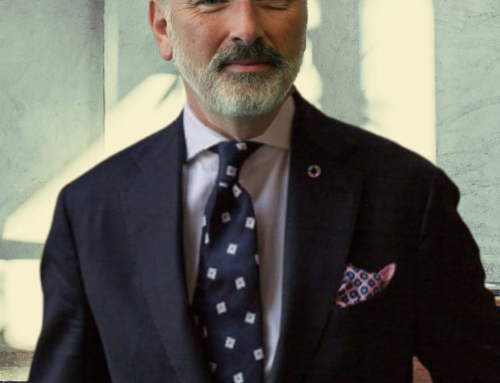Leaders – don’t judge a book by its cover

When conjuring up a picture of a successful leader it is often evokes someone who; confidently holds the stage, enthusiastically accepts being the centre of attention on a 100- person virtual call, happily talks to strangers at business networking events and magnetically connects to those around them. It appears to come easily and naturally, for many leaders it does. A 2019 study from the University of Toronto Scarborough found that extroverts have an advantage in four major categories: emotional; interpersonal; motivational and performance. However, it does state that “few people can be defined purely as an introvert or extrovert, and that everyone displays a range of extroverted and introverted behaviours” A limitation of the study is that it only looked at extroversion and work-related variables, introverts were not studied in detail.
There is plenty of data supporting the strong business case for both gender diversity and ethnic and cultural diversity in corporate leadership. Seeing people who are different in leadership positions is key to driving change for the better. For true inclusivity we need to consider how we help people into leadership roles who are not the obvious candidates.
When assessing how diverse your organisation is there are some clear actions that can be taken, measured and tracked. It is be more difficult to identify and connect the intersectionality and some of the hidden issues of neurodiversity and mental health. Even more challenging is to layer personality types on top of these parameters. There are of course recognised assessment tools such as Myers Briggs and the work of Professor Hans Eysenek’s with his Theory of Personality. My experience of these tools is that they are sometimes used as a basis for interesting discussions rather than for producing an action plan that proactively defining personality gaps in teams and leadership roles and trying to fill them.
I confess to being an introvert who has unexpectedly found myself in a leadership role. If you asked my colleagues, I would not be surprised if they thought I was a confident extrovert. It is easy to mistake passion and enthusiasm as confident extrovert behaviour. Whenever I have tests such as Myers Briggs I have, much to the surprise of others but not to me, been identified as an introvert.
I have to brace myself to enter a room full of strangers both for work and in my personal life. At a party you will always find me in the kitchen behind the scenes. As for dancing, only ever to be seen by close friends. I don’t like talking about myself to those I don’t know very well and am very private, my family would say secretive. Nor am I a fan of answering the phone in case it’s someone I don’t know and I really only use it to ring friends rather than services.
So, I have had to learn to be an ambivert. I can speak in front of large numbers of people at work as I treat it as a task and rely on my drama training from school. As I hate asking questions in meetings, unless I know the people well, I give myself the goal prior to joining of asking one question during the meeting. The advent of virtual meetings, seeing myself and my personal home surroundings on camera, has been a new discomfort. My preference is for my camera to off when speaking to those unfamiliar to me, not because I am rude or
disinterested just shy. My home screen background has a blurred filter as I feel the need to keep my surrounding private, I am not trying to hide anything it just unnerves me to think people are scrutinising something very personal. As a result, I have to make a very proactive decision to turn on my camera and unblur, I am cross with myself for even thinking so much about it. I am not good at blowing my own trumpet but will do it if persuaded. It’s not that I am inauthentic these are coping mechanisms. Embracing feeling uncomfortable has been part of my career journey and I now value those moments of discomfort as I believe they have made me a better leader. Anyway, enough about me….
What is the benefit to business in having introverts as leaders? They can be self-sufficient and happy in their own company. They often don’t need or seek lots of external praise , being alone and not getting much feedback in senior positions can be painful for extroverts. Introverts can be happy to let others take centre stage, give others praise and not take it. I disagree with the findings of the Toronto University study; introverts can be very emotionally sensitive, can lead from behind and encourage others to go forward and this can be motivational. The research from Toronto does acknowledge that there are are also numerous other characteristics that contribute to workplace success, including cognitive ability, conscientiousness, and the ability to regulate negative emotions.
It can be easy to lose introverts inside large organisations, there are plenty of places and reasons to hide. Without identifying them, understanding them, encouraging them to be brave they may not fulfil their potential and the business may not get most value from that person’s contribution. If an introvert also feels their gender and/or ethnicity is not seen in an organisation too they are even more likely to hide or leave!
So, if you spot an introvert, encourage them to embrace being uncomfortable. Don’t assume that a passionate enthusiast is an extrovert. Realise that an introvert might be comfortable and open with you but may be very different with others they don’t know so well. Consider how you build a truly inclusive team through multiple lenses. Don’t exclude an introvert in your leadership selection. I have been lucky to have supportive leaders in my career who have spotted my potential and strengths and given me opportunities.
I will, through the Editor’s encouragement, share this with you, not because I like talking about myself but in the hope it will touch other introverts and help further diversify teams and organisations.
Emma Sargeant
President Europe, DAS Group of Companies (a division of Omnicom)
https://www.dasglobal.com/


Leaders – don’t judge a book by its cover

When conjuring up a picture of a successful leader it is often evokes someone who; confidently holds the stage, enthusiastically accepts being the centre of attention on a 100- person virtual call, happily talks to strangers at business networking events and magnetically connects to those around them. It appears to come easily and naturally, for many leaders it does. A 2019 study from the University of Toronto Scarborough found that extroverts have an advantage in four major categories: emotional; interpersonal; motivational and performance. However, it does state that “few people can be defined purely as an introvert or extrovert, and that everyone displays a range of extroverted and introverted behaviours” A limitation of the study is that it only looked at extroversion and work-related variables, introverts were not studied in detail.
There is plenty of data supporting the strong business case for both gender diversity and ethnic and cultural diversity in corporate leadership. Seeing people who are different in leadership positions is key to driving change for the better. For true inclusivity we need to consider how we help people into leadership roles who are not the obvious candidates.
When assessing how diverse your organisation is there are some clear actions that can be taken, measured and tracked. It is be more difficult to identify and connect the intersectionality and some of the hidden issues of neurodiversity and mental health. Even more challenging is to layer personality types on top of these parameters. There are of course recognised assessment tools such as Myers Briggs and the work of Professor Hans Eysenek’s with his Theory of Personality. My experience of these tools is that they are sometimes used as a basis for interesting discussions rather than for producing an action plan that proactively defining personality gaps in teams and leadership roles and trying to fill them.
I confess to being an introvert who has unexpectedly found myself in a leadership role. If you asked my colleagues, I would not be surprised if they thought I was a confident extrovert. It is easy to mistake passion and enthusiasm as confident extrovert behaviour. Whenever I have tests such as Myers Briggs I have, much to the surprise of others but not to me, been identified as an introvert.
I have to brace myself to enter a room full of strangers both for work and in my personal life. At a party you will always find me in the kitchen behind the scenes. As for dancing, only ever to be seen by close friends. I don’t like talking about myself to those I don’t know very well and am very private, my family would say secretive. Nor am I a fan of answering the phone in case it’s someone I don’t know and I really only use it to ring friends rather than services.
So, I have had to learn to be an ambivert. I can speak in front of large numbers of people at work as I treat it as a task and rely on my drama training from school. As I hate asking questions in meetings, unless I know the people well, I give myself the goal prior to joining of asking one question during the meeting. The advent of virtual meetings, seeing myself and my personal home surroundings on camera, has been a new discomfort. My preference is for my camera to off when speaking to those unfamiliar to me, not because I am rude or
disinterested just shy. My home screen background has a blurred filter as I feel the need to keep my surrounding private, I am not trying to hide anything it just unnerves me to think people are scrutinising something very personal. As a result, I have to make a very proactive decision to turn on my camera and unblur, I am cross with myself for even thinking so much about it. I am not good at blowing my own trumpet but will do it if persuaded. It’s not that I am inauthentic these are coping mechanisms. Embracing feeling uncomfortable has been part of my career journey and I now value those moments of discomfort as I believe they have made me a better leader. Anyway, enough about me….
What is the benefit to business in having introverts as leaders? They can be self-sufficient and happy in their own company. They often don’t need or seek lots of external praise , being alone and not getting much feedback in senior positions can be painful for extroverts. Introverts can be happy to let others take centre stage, give others praise and not take it. I disagree with the findings of the Toronto University study; introverts can be very emotionally sensitive, can lead from behind and encourage others to go forward and this can be motivational. The research from Toronto does acknowledge that there are are also numerous other characteristics that contribute to workplace success, including cognitive ability, conscientiousness, and the ability to regulate negative emotions.
It can be easy to lose introverts inside large organisations, there are plenty of places and reasons to hide. Without identifying them, understanding them, encouraging them to be brave they may not fulfil their potential and the business may not get most value from that person’s contribution. If an introvert also feels their gender and/or ethnicity is not seen in an organisation too they are even more likely to hide or leave!
So, if you spot an introvert, encourage them to embrace being uncomfortable. Don’t assume that a passionate enthusiast is an extrovert. Realise that an introvert might be comfortable and open with you but may be very different with others they don’t know so well. Consider how you build a truly inclusive team through multiple lenses. Don’t exclude an introvert in your leadership selection. I have been lucky to have supportive leaders in my career who have spotted my potential and strengths and given me opportunities.
I will, through the Editor’s encouragement, share this with you, not because I like talking about myself but in the hope it will touch other introverts and help further diversify teams and organisations.
Emma Sargeant
President Europe, DAS Group of Companies (a division of Omnicom)





